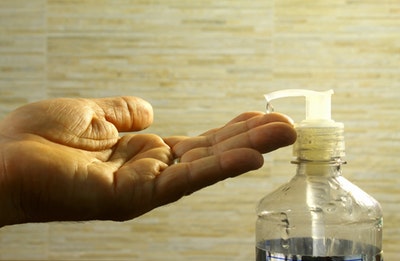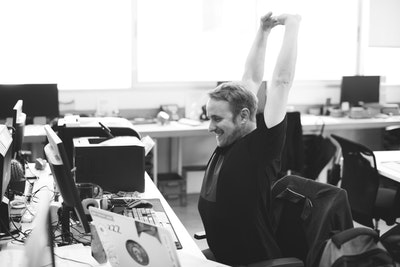There are two things that the average career-minded individual has to worry about above all else: your health and your wealth. However, they don’t always work along well together. Being injured or ill gets in your ability to make money, but making money might actually be bad for your health. If you’re concerned about your health and how your workplace might impact it, here are a few risks to consider and what you can do about them.
The cubicle crush
It’s time to clear one myth off the table: it’s not just oil rigs and factories that can be dangerous places to work. A desk job can be just as bad for your health, due to the sedentary lifestyle that it contributes to. Fewer reasons to get up and move around mean it’s a lot easier to struggle with obesity. As well as making time to find exercise outside of work, you should look at ways to stay in shape at your desk, as well. Finding opportunities to run office errands that get you on your feet, doing small exercises in your seat, or shifting to a standing desk can all do your body a lot of good.
Overworking and overtime
Overtime might seem like a blessing to some of us, but more and more we’re becoming aware of just how dangerous it can be. One of the work potential health consequences of taking overtime too often is a serious risk factor of heart disease and heart attacks, as shown by Medical Daily. In part, this is largely due to the stress caused by taking on too much work. Finding work-life balance can be difficult when you have bills to pay, but the fact that 43% of survey participants that take regular overtime showed signs of heart disease and related conditions is an indication that we can stand to take it a little easier. A big part of the overtime epidemic is directly related to employers, too, who often pressure their team into taking it. It’s important to stand your ground, be firm, and say ‘no’ when you know that you’ve been overworking.
Get your head down
Stress can also be a major catalyst of sleep deprivation, particularly when it relates to working late. However, one of the most worrying trends in a population that is growing more flexible with their work hours is that shift work and sleep problems seem to go hand-in-hand. Shift work has been shown to affect the natural body clock, throwing it off rhythm so not only do you sleep less, the sleep that you get is of much lower quality. It’s so prevalent that Shift Work Sleep Disorder has become a legitimate term in the medical community.
All your favorite bugs in one place
No matter what kind of space it is, the workplace has also proven to be a favorite hangout for germs. It’s only natural that spaces containing so many people from different households will expose us to every cold, flu, and other bug that’s going around at the moment. If you don’t have guaranteed sick time pay, then you have to make sure you protect yourself, and your paycheck, from the office bugs. This means you have to be doubly protective of your hygiene. For instance, have sanitary wipes you use to clean taps and handles in the bathroom before you use them. Use them to clean your phone, keyboard, and desk every time you sit down. Have hand sanitizer at the ready to clean your hands any time you come into contact with others (but do it discreetly, there’s no need to offend people).
The real workplace toxicity
We hear of how toxic workplaces involving gossip, bickering, and overly competitive coworkers can lead to real stress. But that term seems a little too strong when many of us are working in conditions that are doing real long-term damage to our bodies. Exposure to chemicals, such as bleach used to clean the office, and poor air quality, can make us sick in the short term and contribute to conditions like asthma in the long-term. Get to know the hidden dangers in the workplace, as shown at the Work Safety Blog, and ask your employer about them if you think you’re exposed to those unseen risks.
The ubiquity of accidents
Let’s not forget that workplace accidents and injuries are still tremendously common. Even if it’s something as simple as a sprain or a muscle strain, if it debilitates you and makes you unable to work, it can impede your ability to make money. You might not be entitled to sick pay, but you are entitled to compensation if an injury, illness, or disability is caused by the workplace as shown by Finkelstein, Meirowitz & Eidlisz, LLP. If you are injured or made sick by the workplace, make sure you make a report of it and even collect witnesses, as too many people are forced to fight an employer for what they’re legally entitled to.
The leading cause of disability
It’s both a hidden danger and a common result of workplace accidents, but back pain is the leading cause of disability at the moment. Back pain makes up for 41% of all work-related injuries, and those numbers don’t include those who suffer back pain caused by conditions like working at a desk in a seat with no back support. If you’re starting to suffer back pain as a result of your job, talk to your employer about it and highlight a few ways they can tackle it, such as getting a standing desk or more ergonomic furniture. Again, it is their responsibility to keep the workplace from impacting your health and the impacts of back pain are indisputable.
It is an employer’s responsibility to guarantee as safe a working environment as they can, whether it’s an oil rig or a comfy office space. However, it’s up to you to point out workplace risks when you can and to do what you can to counteract the negative impacts that your job might have even without accident risks.




No comments yet.